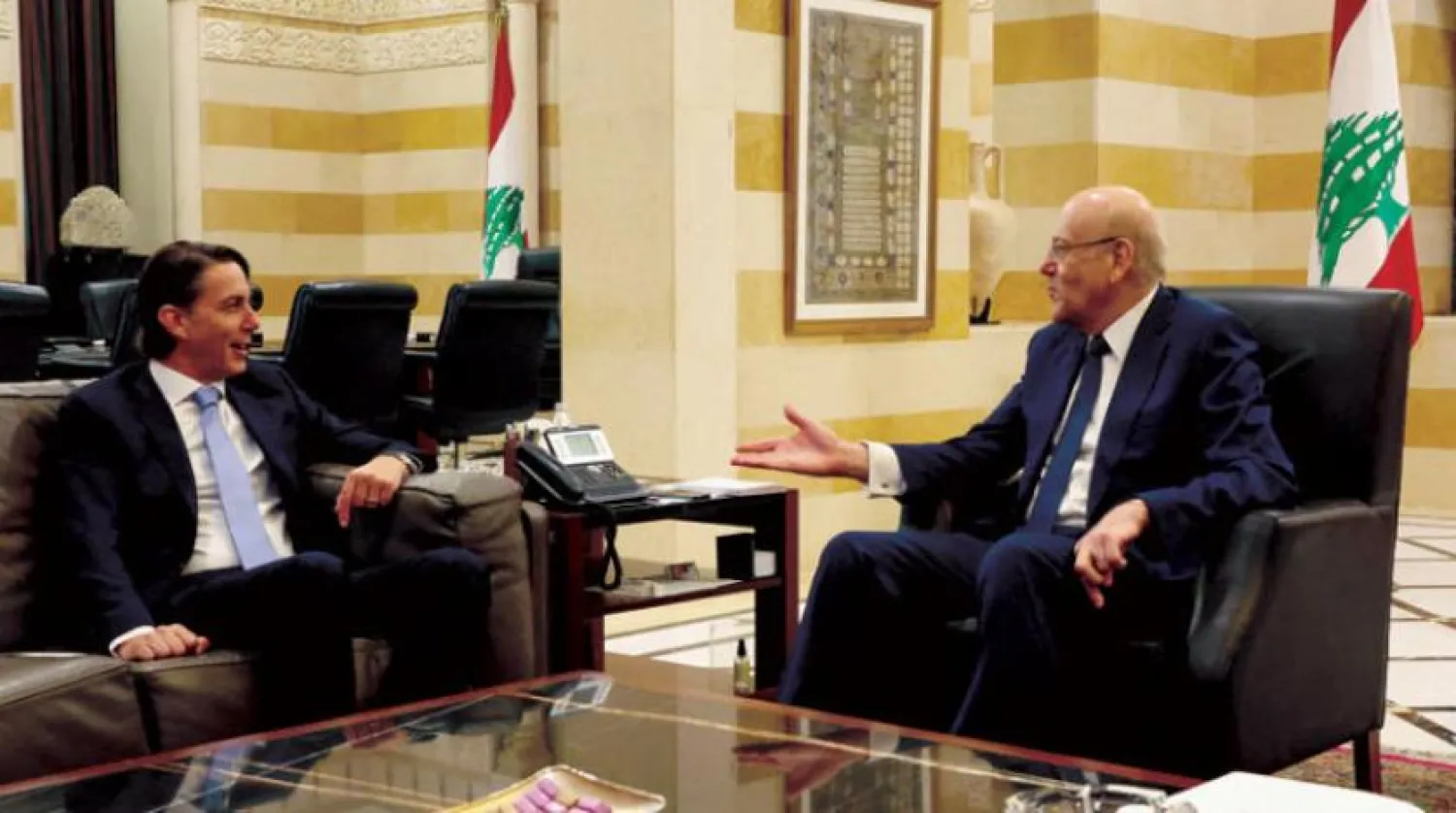Lebanese officials maintained silence over the negotiations to demarcate the maritime borders with Israel, led by US mediator Amos Hochstein, amid recent indications on promising developments, especially with the direct intervention of President Joe Biden to advance the talks.
A Lebanese source following the mediation asserted that the atmosphere surrounding the negotiations was completely different from the negative impression conveyed by the media, pointing in this regard to the issuance of recent statements on the matter, after a long period of silence.
First, a statement was issued by Deputy Speaker of Parliament MP Elias Bou Saab, followed by comments from the White House, and a phone communication between Biden and Israeli Prime Minister Yair Lapid on the eve of Hochstein’s meeting with Israeli officials, and finally, a clear statement from the US president.
According to the Lebanese source, the global energy crisis and US interests [with Europe] make stability in the region very important to the US. These factors gave Lebanon an opportunity to reach a solution that is commensurate with its demands, and could finally constitute a solution to the country’s political, economic and financial crises.
Bou Saab, who is in charge of communicating with Hochstein, told Asharq Al-Awsat that he hoped to obtain Israeli answers within the next two weeks, after the recent US impetus.
The Lebanese deputy, who refused to go into details, explained that his country “is not overly pessimistic or optimistic about this issue, especially since things are not stagnant”, avoiding to give specific information about Lebanon’s demands and Israel’s proposals in this regard.
Bou Saab, however, did not hide his contentment with the ability of the Lebanese side to prevent leaks that could harm the negotiation process. He noted that the purpose of maintaining silence was to avoid embarrassing the other side, which could feel compelled to retreat due to popular pressure.
He said: “Last week, I sensed an escalation in the pace of communication by the US mediator. The work has never stopped, and secrecy is in the interest of negotiations; we are now waiting for an evaluation by Hochstein of his meetings with the Israelis, after which he will communicate with me."
A source close to the White House pointed that Hochstein continued his “robust engagement to bring the maritime border discussions to a close.”
“We continue to narrow the gaps between the parties and believe a lasting compromise is possible. We welcome the consultative spirit of both parties to reach a resolution.”
The source explained that Hochstein maintained daily communication with Israeli and Lebanese officials, including Bou Saab, adding that US Ambassador Dorothy Shea was also in touch with the Parliament speaker, the prime minister and their advisors.
Resolving the maritime border dispute “is a key priority for the Biden Administration,” the source told Asharq Al-Awsat. “We firmly believe a deal has the potential to promote lasting stability and economic prosperity for both countries.”









